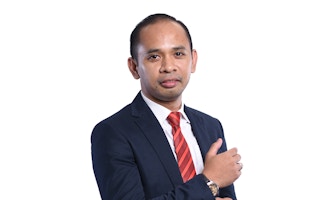The Asean Centre for Energy (ACE), a regional organisation representing the energy interests of 10 Southeast Asian nations, has launched a new “Sustainable Renewable Energy” department, which will focus on industrial and transport applications for clean energy.
To continue reading, subscribe to Eco‑Business.
There's something for everyone. We offer a range of subscription plans.
- Access our stories and receive our Insights Weekly newsletter with the free EB Member plan.
- Unlock unlimited access to our content and archive with EB Circle.
- Publish your content with EB Premium.
Beni Suryadi, who leads the “Power, Fossil Fuel, Alternative Energy and Storage” team at the Jakarta-based centre, will concurrently be the acting manager of the new department.
Suryadi explained that ACE saw an “urgent need” to have a new branch focus entirely on renewable energy issues not just in electricity generation but also the transport and industry sectors, to help the bloc achieve its decarbonisation targets. The Sustainable Renewable Energy department will push for higher use of bioenergy, or fuels extracted from plant material, and adoption of electric vehicles.
“Direct use of renewable energy in the end-use sectors may have as much impact as its deployment for electricity generation,” Suryadi said.
Asean nations are striving to have 23 per cent of their primary energy needs – including fuels for vehicles and factories – met by renewables by 2025. The figure stood at just over 14 per cent in 2020.
Existing policies are expected to be insufficient to meet the 2025 target. The industrial sector in particular lacks regulations to move it away from fossil fuels, Suryadi said.
Suryadi added that reaching the target may seem “mission impossible”, but he sees it as a mandate to be achieved.
ACE has two other units with renewable power in their portfolio. The Renewable Energy and Energy Efficiency department works on off-grid projects, while the Power, Fossil Fuel, Alternative Energy and Storage department helms projects connected to national and trans-national power grids in the region.
Suryadi noted that renewables contributed to over 80 per cent of the 22 gigawatts of new electricity capacity installed in the Asean region in 2020. While the bloc could fall short on renewables in its primary energy supply, it is set to exceed a target specifically on electricity – for 35 per cent to come from renewables by 2025 – by 3 percentage points.
ACE conducts research, advocacy and capacity building programmes with Asean member states to drive policy action in energy matters. It is also involved in developing a pan-Asean power grid, a project conceptualised in the 1990s that is gaining renewed momentum in the face of climate and energy security concerns.
Suryadi had been with ACE since 2017, with a previous stint in policy research and analytics.
Southeast Asia is a rapidly developing region that is also heavily dependent on fossil fuels. Green finance has been pledged to the region to cut its use of pollutive coal, with wealthy nations striking two “just energy transition partnership” deals with Indonesia and Vietnam last year totalling over US$35 billion in loans and grants.
The Asean bloc consists of Brunei, Cambodia, Indonesia, Laos, Malaysia, Myanmar, Philippines, Singapore, Thailand and Vietnam.












